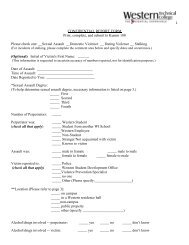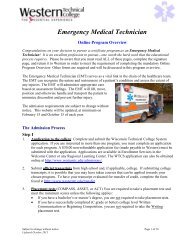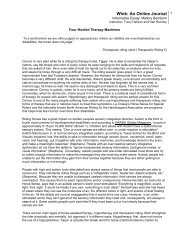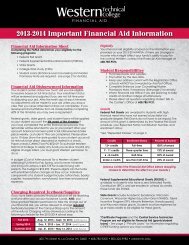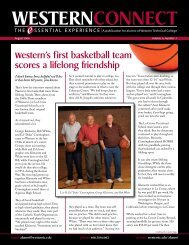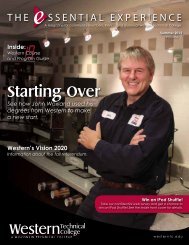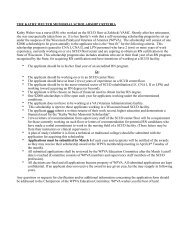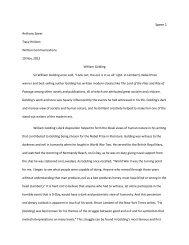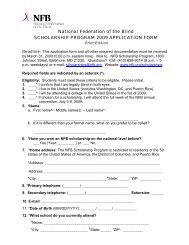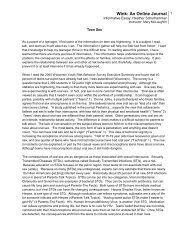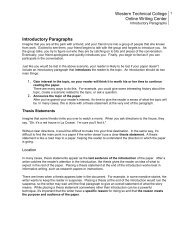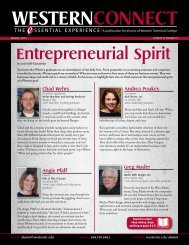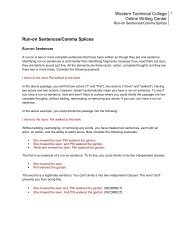Compass Writing Samples
Compass Writing Samples
Compass Writing Samples
You also want an ePaper? Increase the reach of your titles
YUMPU automatically turns print PDFs into web optimized ePapers that Google loves.
WRITING SKILLS ANSWER KEY<br />
1. (1) The plural of death is deaths. No possession (death’s) is shown.<br />
2. (4) The subject is detectors, so the verb must agree with the plural subject.<br />
3. (1) The new sentence would read, “In most cases, everyone should evacuate<br />
a home when a fire has started or the smoke alarm sounds, and someone<br />
outside the home should call the fire department.”<br />
4. (3) The pronoun them incorrectly refers to the singular noun extinguisher. The<br />
pronoun it is singular.<br />
5. (4) The indefinite pronoun each is always singular, so the verb must agree with<br />
a singular subject.<br />
6. (2) The original sentence is a comma splice. It incorrectly joins two complete<br />
thoughts with only a comma. Only choice (2) is punctuated correctly.<br />
7. (5) No correction is necessary.<br />
8. (2) This choice eliminates the incorrect pronoun you, which does not fit in the<br />
passage.<br />
9. (1) This sentence contains a series of three items that should be separated by<br />
commas.<br />
10. (1) The word European is derived from the name of a continent, Europe, so it<br />
should always be capitalized.<br />
11. (5) The possessive pronoun their should be used here to show that the<br />
homes belong to the hosts.<br />
12. (3) Keep a silent e when adding ly to appropriate.<br />
13. (3) The subject, popularity, is singular, so the verb must agree with a singular<br />
subject: popularity offers.<br />
14. (4) The new sentence would read, “Because staying in a private home offers<br />
travelers a more personal atmosphere, they feel pampered and enjoy visiting<br />
with the hosts.”<br />
15. (5) The phrase Saying that they feel safer and like being treated as guests<br />
describes the travelers, not the hosts. Choice (5) puts the phrase next to<br />
travelers.<br />
16. (3) This sentence, as well as the passage as a whole, is written in present<br />
tense: travelers can stay.<br />
17. (2) The new sentence would read, “Travelers who cannot afford a long trip<br />
can still enjoy a peaceful getaway weekend as houseguests.”<br />
18. (2) Each of the parts of the series, can stay at home, make money, and meet<br />
a variety of people, must be parallel in wording.<br />
19. (1) The term state tourism departments is not the name of a specific agency.<br />
State should not be capitalized.<br />
20. (2) This commonly misspelled word has one m, not two.<br />
21. (3) The new sentence would read, “Dismayed to find the issue of sexism, the<br />
educators immediately analyzed the results.”<br />
22. (3) The original sentence is a fragment because the verb, revealing, requires<br />
a helping verb. The verb form revealed is complete.<br />
23. (2) The past participle of the irregular verb begin is begun: had begun.<br />
24. (3) The new sentence would read, “Only half as many girls as boys were<br />
enrolled in computer-programming classes; furthermore, schools with computer<br />
18



